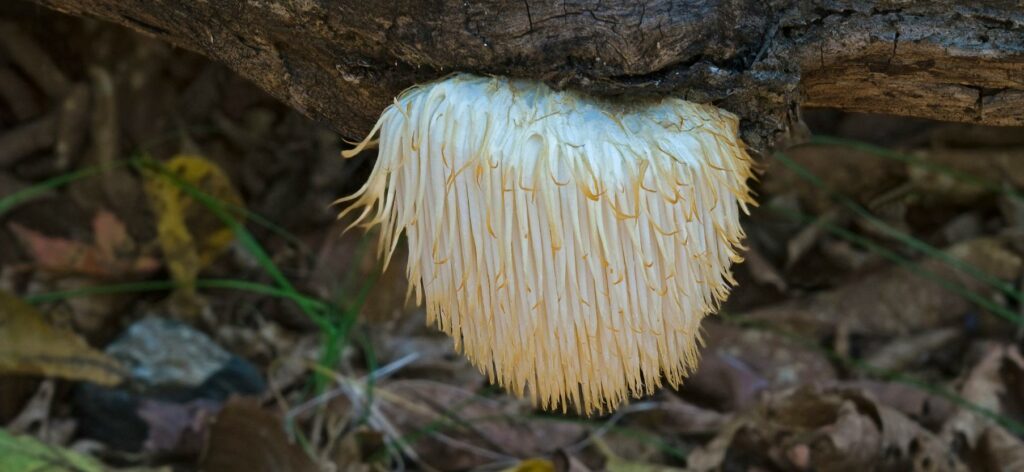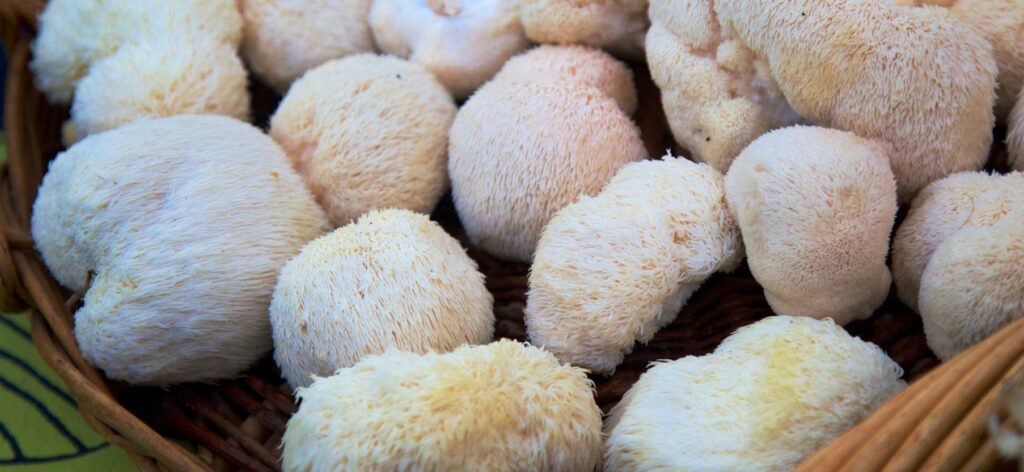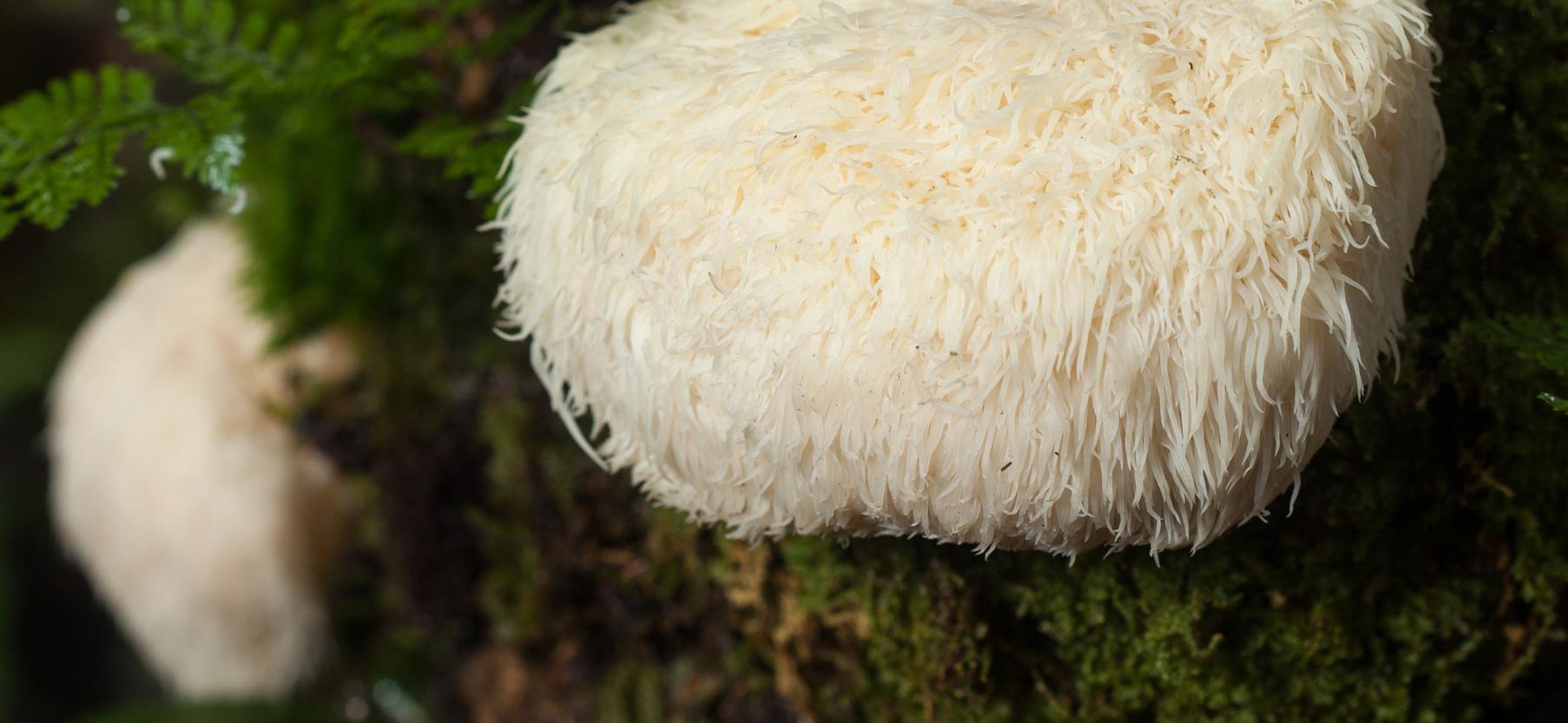If you’re interested in natural health, you’ve probably heard of Lion’s Mane mushrooms. These medicinal mushrooms are prized for their medicinal properties and have been long used in Traditional Chinese Medicine. If you’re looking to add them to your diet, it’s natural to have questions. Where can you buy lion’s mane? What should you look out for? Is lion’s mane psychedelic? Read on for the answers you’re looking for.
What are Lion’s Mane mushrooms
Lion’s Mane mushrooms are a unique species of mushroom with a long and fascinating history. The name is fitting, as the mushroom itself has a round and shaggy white appearance, resembling the mane of their animal namesake. Their shaggy white “teeth”, which are actually spines containing spores.
These mushrooms are native to temperate climates, and typically found growing on hardwood trees such as oak or beech. They can be found into the fall when the temperatures start to drop, as they are hearty enough to withstand the cold. The mushrooms grow in clumps of several mushrooms at a time, making them an easy find.

Benefits of lion’s mane mushrooms
These mushrooms have become a popular diet addition due to the health benefits they offer, particularly regarding cognition. One of their biggest assets is their impact on brain function. Studies show that lion’s mane mushrooms can boost your memory, focus, and overall cognition capacity. They are thought to do this by interacting with nerve growth factor receptors in the brain—supporting better communication between neurons. There is some evidence that this can even help prevent degenerative conditions like Alzheimer’s and dementia. Its no wonder these mushrooms have become a popular way to add a cognitive boost to coffee.
In addition to impacts on brain health, they’re is also being studied as an anti-inflammatory. Researchers studying depression have found links between inflammation and depression. This makes lion’s mane a candidate for helping to alleviate mental health symptoms: a study in mice found that administering lion’s mane mushroom extract reduced depression with ties to inflammation.
These powerful mushrooms have also been tied to benefits in heart health, digestive wellness, nervous system recovery, immune system support, and diabetes management. A true powerhouse!
Is Lion’s Mane Psychedelic
The conversation about mushrooms and their benefits can sometimes conflate psychedelic and functional mushrooms. After all, both can be beneficial in different ways, and they are often both referred to as therapeutic or medicinal. So we can’t fault you for wondering whether lion’s mane is psychedelic, especially if you’re considering adding it to your daily coffee. To set the record straight: no. Lion’s mane is not psychedelic, and has no known hallucinogenic effects at any dose.
What to look for
When buying supplements, it’s important to know where the mushrooms are harvested, and what part of the mushroom the extract is derived from.
The cap and stem of a mushroom is called the Fruiting Body. The web of underground fibres that support this body is called the Mycelium. Both of these parts can contain beneficial compounds, but in most cases, the highest concentration is found in the fruiting body.

It’s also worth checking to see if a product contains grain or “myceliated grain” (mycelium‑based products usually do). Creating supplements with mycelium grown on grain is much less expensive than using full fruiting bodies, but these products also contain far less of the beneficial compounds mushrooms are known for.
Your best bet is to look for products that use primarily fruiting bodies, and contain no added starch or grain.
How to take lion’s mane supplements
Lion’s mane supplements can be found in multiple formats, making it easy to work them into your daily schedule. You can buy a tincture and add a few drops to your smoothie; mix a spoonful of powdered extract into your coffee; or even take a lion’s mane capsule with your other supplements in the morning.
Because of their many health benefits, the mushrooms are often featured in blends alongside other adaptogens and medicinal herbs. For example, you may find it paired with maca, an adaptogen known for its energy-boosting properties. It’s also a key part of functional mushroom blends, which typically feature other beneficial fungi like reishi, chaga, turkey tail, or cordyceps.
Where to buy lion’s mane mushrooms
Our shop features a carefully vetted collection of lion’s mane supplements in multiple formats. Our in-house nutritionist carefully vets each brand for quality and ingredient sourcing, ensuring we carry only the best.
- Tinctures: for tinctures, try Harmonic Arts or Rainbo: both are organic, vegan, and made with primarily fruiting body mushrooms
- Powdered Extract: The New New Age makes a great lion’s mane blend, featuring maca, ginger, and cardamom
- Lion’s Mane Tea & Coffee: Botanica’s iced tea or our infused coffee are both delicious and convenient ways to get your daily dose
- Mushroom blend: Apothekary’s Mind over Matter blend features lion’s mane, reishi, and chaga

